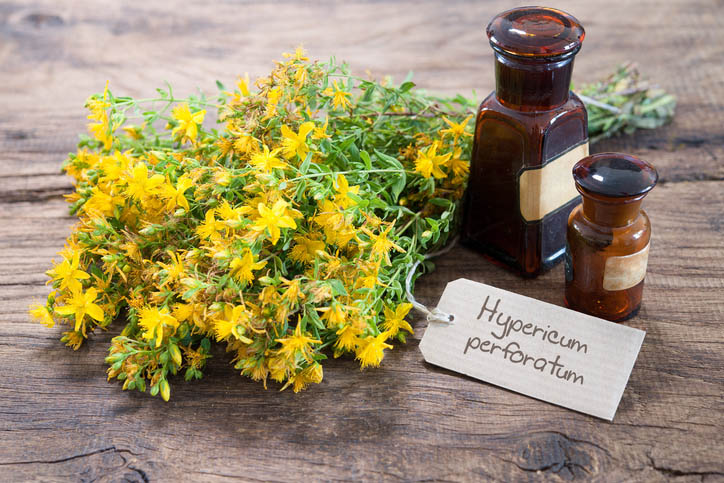It is very important that nurses are aware of such herbal medicine as St. John’s wort (Hypericum Perforatum), given the fact that it can interact with many conventional medications. St. John’s wort comes from the dried flower tops of the St. John’s family plant. It is a perennial plant that has transparent perforations on its leaves, with yellow flowers whose medicinal uses were first recorded in ancient Greece. St. John’s Wort has been used as a medicinal herb for centuries dated to the 6th century. Apparently, the use of St. John’s wort is not of recent discovery.
The compounds of the St. John’s wort extract include the following:
- Amentoflavone
- Hyperforin
- Hypericin
- Hyperoside
- Isoquercitrin
- Myricetin
- Quercitrin
- Rutin
Hypericin and hyperforin are the most thoroughly researched natural antidepressants. Mechanisms of action of Hypericin may include serotonin reuptake modulation, increases in interleukin-6 activity, and agonist action of sigma receptors. St. John’s wort/hypericin/hyperforin improves many symptoms including depression, anxiety, apathy, sleep disturbances, insomnia, anorexia, and feelings of worthlessness. Advantages over antidepressant drugs are fewer side effects, lower cost, and greater patient tolerance.
St John’s wort is a popular herbal remedy recommended by many licensed traditional practitioners and is widely prescribed for depression in many European countries. To really understand why an effective antidepressant herbal medicine is not more frequently promoted in the western hemisphere, we must look to politics. The U.S. Food and Drug Administration (FDA) does not view herbal products as conventional medicine, but as supplements to conventional medicine. The FDA’s rationale is that herbal products have not been studied thoroughly enough to recognize the potential side effects of these products. Evidence on the long-term efficacy and safety of St. John’s wort is limited, as the duration of most available studies range from 4 to 12 weeks.
St John’s wort is effective in treating mild-to-moderate depression. It is also used for anxiety, stress, premenstrual syndrome, perimenopausal symptoms, seasonal affective disorder, obsessive-compulsive disorder, and atopic dermatitis. This drug should not be used for severe major depression.
Side effects of St. John’s wort include photo sensitivity, gastrointestinal upset, insomnia, anxiety, headache, fatigue, sedation, skin rash, sexual dysfunction, dry mouth, dizziness, altered menses, increased bleeding, and decreased effectiveness of birth control pills leading to unwanted pregnancy.
This herb should not be used by children or by pregnant or lactating women, and it should not be used with other antidepressants or with any drug or substance that increases bleeding. Patients should wait 2 weeks to use St. John’s wort after discontinuing any antidepressant or vice versa.
The herb should be kept dried. It should not replace conventional care and the client should not postpone seeing a health care provider about a mental health problem. Integrating these therapies prove to be effective when used in combination with conventional therapy.
- Herbal Medicine: Everything You Need to Know About St. John’s Wort - September 20, 2018



